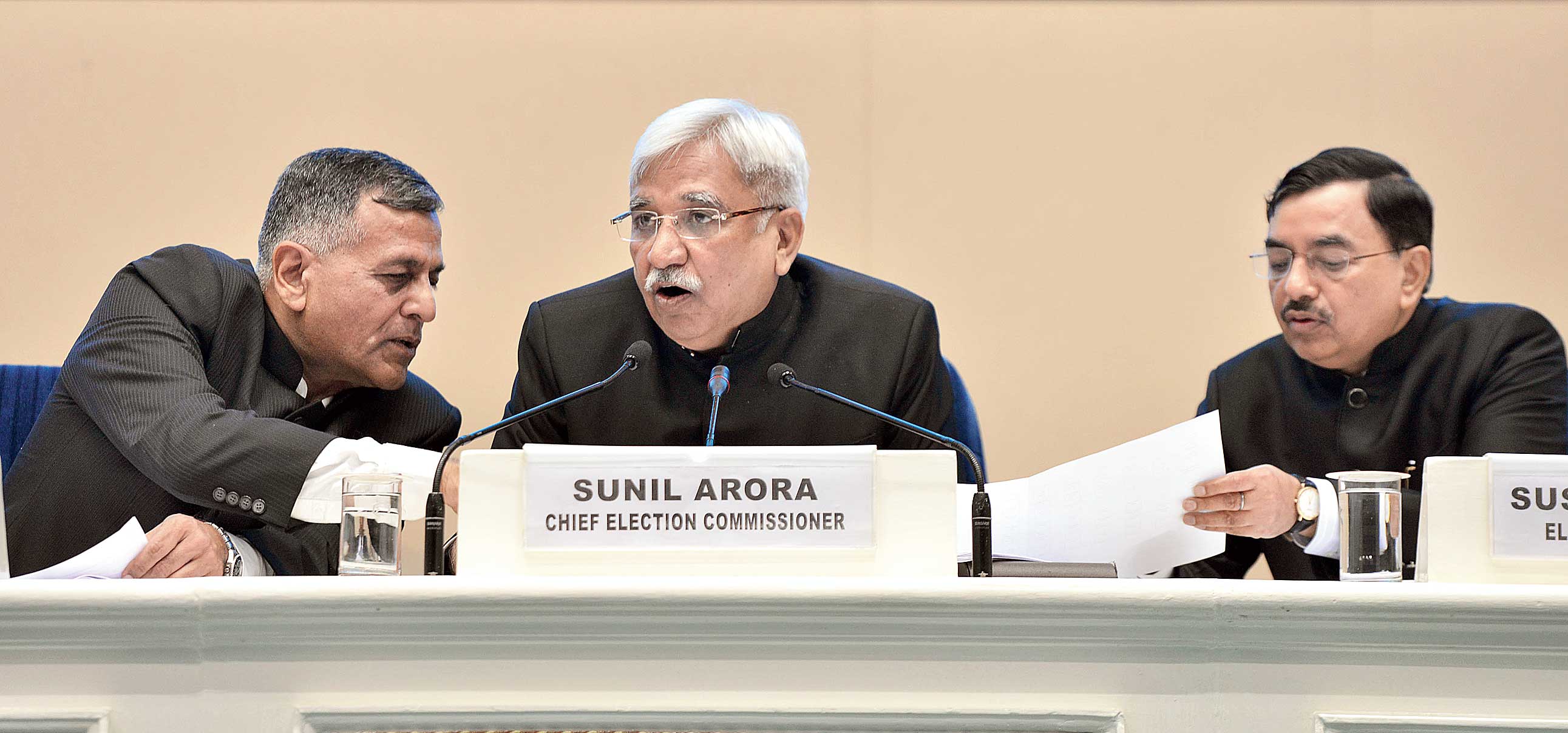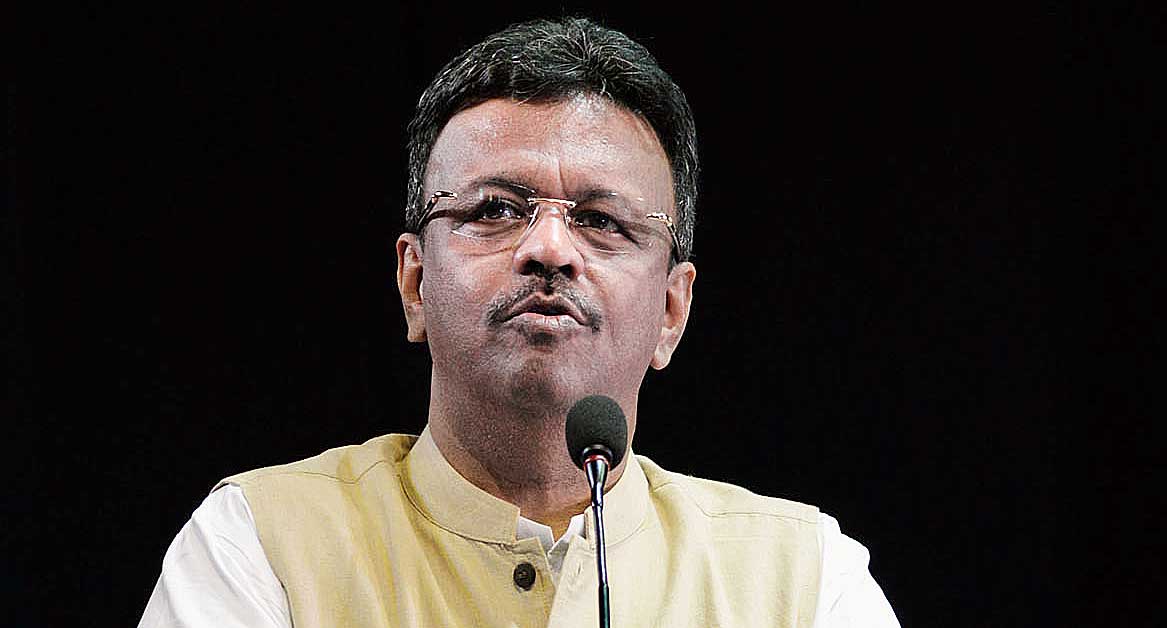The Election Commission on Sunday said the number of phases in which polling would be held in each state was decided with the movement of security forces in mind, but the BJP is privately cheering the spread-out schedule in states that are critical to its strategy.
Odisha and Bengal, for instance, are states the BJP is aiming to pick up seats from to compensate for possible losses in the heartland.
Polling in Odisha will be held in four phases, up from two phases in 2014.
BJP leaders said this would help it organise more public meetings to be addressed by Prime Minister Narendra Modi, its main campaigner.
“The time gap will also enable the party to mobilise cadre movement from one region to another,” one BJP leader said.
Asked why Odisha, with 21 seats, would vote in four phases, chief election commissioner Sunil Arora said: “Everything depends on movement of security forces. Phases have been accordingly decided.”
In Bengal, where BJP chief Amit Shah has declared the party will win 23 of the 42 seats, polling will be held in all seven phases this election.
In the nine-phase election in 2014, polling in Bengal was held in five phases.
“Bengal this time will see the maximum number of rallies by Modi ji. There is huge support for the party in the state and Modi ji’s rallies would generate a wave in the state,” one BJP leader said.
Questions are being raised about spreading out polling in two phases in Karnataka, an exception among the southern states. Karnataka had voted in a single phase in 2014.
Queried about the decision to split polling in Karnataka, which has 28 seats, while opting for one phase in neighbouring Tamil Nadu that has 39 seats, chief election commissioner Arora again cited “movement of security forces” as the reason.
Again, Karnataka is a state the BJP has its sights set on. Ever since it lost power in the Assembly elections last year, the party has been accused of trying to poach MLAs to topple the ruling JDS-Congress alliance.
The BJP believes it can win more Lok Sabha seats in the state if Modi addresses more public meetings. A two-phase election will make that easier to plan.
Four-phase polling in Madhya Pradesh, Maharashtra and Jharkhand is also being seen as an advantage by the BJP. The BJP lost Madhya Pradesh to the Congress by a slender margin. In Maharashtra, which saw 3-phase polling in 2014, Modi needs time to travel across the state to counter the Congress-NCP alliance.
For the same reason, the party is happy with the seven-phase polling in Uttar Pradesh and Bihar. In the nine-phase elections of 2014, the two states had voted in six phases.
Politician and psephologist Yogendra Yadav questioned the poll schedule in a tweet. He wrote: “Some genuine Qs (no accusation) for EC:
- Why Odisha in 4 phases, when AP/Tel in 1 Ph?
- Why extend WB to 7 Ph?
- If MP state poll in 1 day, why LS in 4 Ph?
- Why decouple snow bound areas of HP and Uttkd?
- Why extend Maha to 4 Ph?
- Why decouple assembly & LS polls in JK?”
Twenty-two states and Union territories, including Andhra Pradesh, Tamil Nadu and Telangana, will have one phase of polling.













